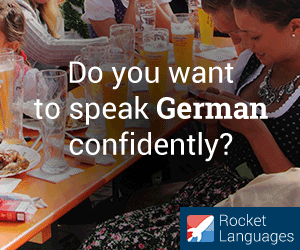Speak To The World
German Vowels: Learn How to Pronounce Them Easily
German vowels with regard to German Alphabet is often a sound that’s pronounced by simply using your lips (when it comes to nasal vowels, the use of your nose) without blockage of the lips, tongue, or throat.You will find certainly many common regulations to make note of each time saying German vowels. Learn More
The articulatory options which will recognize various German vowel sounds are usually said to determine the vowel’s top quality when it comes to German Language. In the well-established vowel technique just like the German vowel method, you’ll notice typical attributes – height (vertical dimension), blackness (horizontal dimension) and roundedness (lip area position). Learn The German Vowels
| ) |
You’ll find nonetheless also far more probable features of German vowel good quality, such as the velum position (nasality), type of vocal fold vibration (phonation), along with tongue root position.
List of German Vowels in German Alphabet
German Vowels in Alphabet
| a | like 'u' in "cup", 'a' in "target". In Austria, it sounds more like "au" in "Paul". |
| e | like 'e' in "ten", or 'e' in "emotion". Very often in the spoken language and in colloquial writing it tends to be replaced by an apostrophe when found in the middle of a word. For instance: Gewehr (rifle) becomes G'wehr; gesehen (to have seen) becomes g'seh'n. |
| i | like 'i' in "bingo", or 'i' in "hit". In southern dialects, especially in Austria, it tends to be pronounced like an "ee" in "seen" |
| o | like 'oo' in "door", like 'o' in "mole" |
| u | like 'ou' in "you" |
| ä | (Umlaut, transcribed as 'ae') like 'e' in "ten", 'a' in "band" |
| ö | (Umlaut, transcribed as 'oe') like 'i' in "Sir" (not a sound in English) |
| ü | (Umlaut, transcribed as 'ue') like 'ew' in "EWWW (disgust)" |
| y | same as 'ü', but also consonant "j" in words of foreign origin ("Yacht") |
| Umlauts are usually (albeit not always) stressed. |
German Semi Vowels in Alphabet
Select the links below to check out a number of practical German travel words that are arranged by group. For every holiday phrase in German, you will see the English translation.


Leave a Reply
You must be logged in to post a comment.